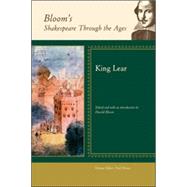
| Series Introduction | p. ix |
| Volume Introduction | p. xi |
| Biography of William Shakespeare | p. 1 |
| Summary of King Lear | p. 5 |
| Key Passages in King Lear | p. 23 |
| List of Characters in King Lear | p. 49 |
| Criticism Through the Ages | p. 51 |
| King Lear in the Seventeenth Century | p. 53 |
| 1681-From The History of King Lear | p. 54 |
| 1699-From The Antient and Modern Stages Surveyed | p. 71 |
| King Lear in the Eighteenth Century | p. 73 |
| 1710-From Remarks on the Plays of Shakespear | p. 74 |
| 1715-"Remarks on King Lear," from The Censor | p. 75 |
| 1735-From The Prompter | p. 79 |
| 1753-From The Adventurer | p. 83 |
| 1768-From Notes on Shakespear's Plays | p. 93 |
| 1775-"Lear," from The Morality of Shakespeare's Drama Illustrated | p. 95 |
| 1784-"On the Dramatic Character of King Lear," from Essays on Some of Shakespeare's Dramatic Characters | p. 96 |
| King Lear in the Nineteenth Century | p. 99 |
| 1809-"Criticisms on Shakespeare's Tragedies," from Lectures on Dramatic Art and Literature | p. 100 |
| 1812-"On the Tragedies of Shakespeare," from The Reflector | p. 103 |
| 1817-"Lear," from Characters of Shakespear's Plays | p. 104 |
| 1818-"Lear," from Lectures and Notes on Shakspere and Other English Poets | p. 110 |
| 1818-"On Sitting Down to Read King Lear Once Again" | p. 115 |
| 1833-"Cordelia," from Shakspeare's Heroines: Characteristics of Women, Moral, Poetical, & Historical | p. 115 |
| 1838-"The Restoration of Shakespeare's Lear to the Stage," from The Examiner | p. 116 |
| 1864-William Shakespeare | p. 119 |
| 1875-"Lear," from Shakspere: A Critical Study of His Mind and Art | p. 122 |
| 1880-A Study of Shakespeare | p. 134 |
| 1883-Some Criticisms on Poets, Memoir by His Son | p. 137 |
| King Lear in the Twentieth Century | p. 139 |
| 1904-"King Lear," from Shakespearean Tragedy | p. 141 |
| 1906-"On Shakespeare" | p. 156 |
| 1913-"The Theme of the Three Caskets," from Imago | p. 163 |
| 1920-"Shakespeare's King Lear: An Address to the Actors" | p. 164 |
| 1930-"The Lear Universe," from The Wheel of Fire | p. 169 |
| 1947-"Lear, Tolstoy, and the Fool," from Polemic | p. 195 |
| 1949-"Cordelia as Nature," from Shakespeare's Doctrine of Nature: A Study of King Lear | p. 200 |
| 1951-"King Lear," from The Meaning of Shakespeare | p. 213 |
| 1966-"Deus Absconditus: Lear," from King Lear and the Gods | p. 246 |
| 1974-"'Is This the Promised End?': The Tragedy of King Lear," from Journal of Aesthetics and Art Criticism | p. 270 |
| 1986-"King Lear," from Northrop Frye on Shakespeare | p. 288 |
| 1988-"Introduction," from King Lear (Modern Critical Interpretations) | p. 304 |
| 1992-"Introduction," from King Lear (Major Literary Characters) | p. 311 |
| King Lear in the Twenty-first Century | p. 321 |
| 2004-"'Gods That We Adore': The Divine in King Lear," from Renascence | p. 321 |
| Works Cited | p. 337 |
| Bibliography | p. 341 |
| Acknowledgments | p. 343 |
| Index | p. 345 |
| Table of Contents provided by Ingram. All Rights Reserved. |
The New copy of this book will include any supplemental materials advertised. Please check the title of the book to determine if it should include any access cards, study guides, lab manuals, CDs, etc.
The Used, Rental and eBook copies of this book are not guaranteed to include any supplemental materials. Typically, only the book itself is included. This is true even if the title states it includes any access cards, study guides, lab manuals, CDs, etc.